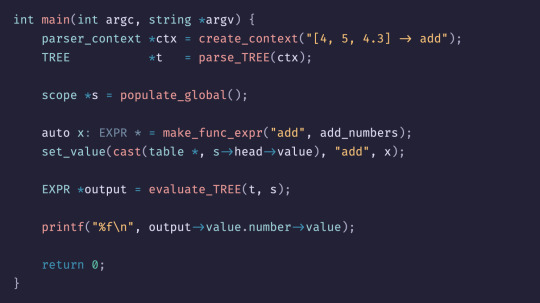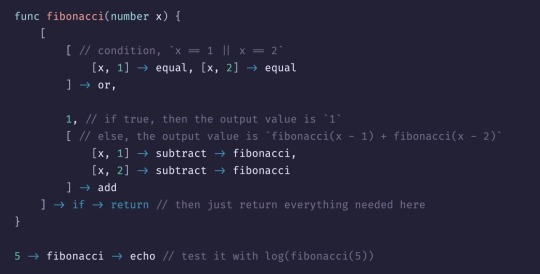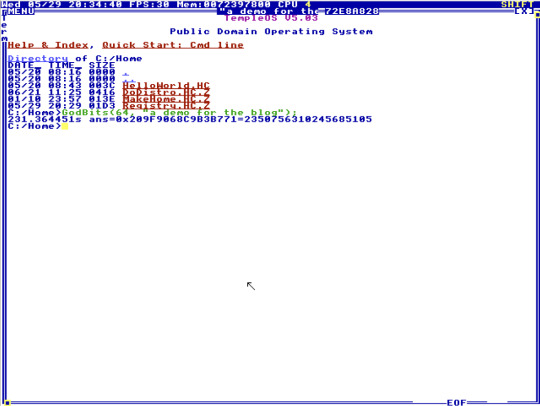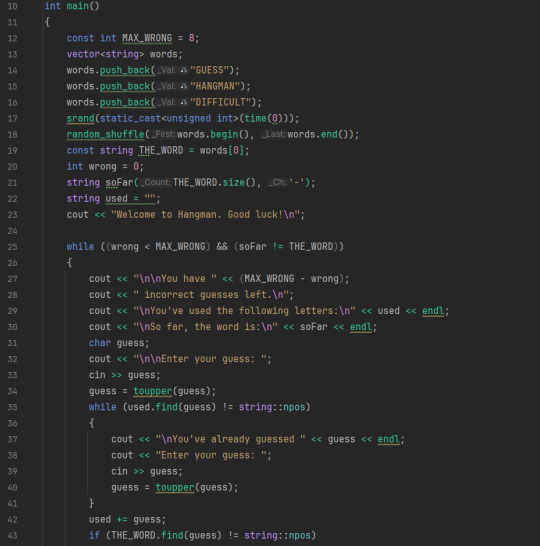#Software engineer C
Explore tagged Tumblr posts
Text
How to Build a Career in C Programming: Tips, Roles, and Industry Outlook (2025)
The UK is currently facing a talent shortage in low-level software engineering, making this the perfect time to pursue a career in C programming jobs UK. C is a language that has stood the test of time—used in operating systems, embedded systems, aerospace software, and more.
If you’re passionate about building efficient software that directly communicates with hardware, then a future in C developer jobs may be perfect for you.
What Makes C So Important in 2025?
While web development may lean on JavaScript and Python, C remains indispensable for system-level software. Companies developing hardware controllers, communication systems, or high-frequency trading platforms all need engineers experienced in software engineer C roles.
These roles require tight control of resources, making C ideal for:
Embedded systems
Operating system kernels
Network protocol stacks
Real-time computing environments
The Embedded C Jobs Landscape in the UK
From automotive to medical technology, embedded C jobs are everywhere. The shift toward electrification and autonomous vehicles has pushed companies like Jaguar Land Rover and Dyson to increase hiring in embedded development.
Engineers are expected to write portable, efficient C code on limited-resource environments. These systems demand accurate timing, low power usage, and high stability—all areas where C excels.
Breaking Into High-Performance Computing with C
Scientific research institutions and finance companies across the UK rely on HPC clusters for simulation and analysis. To power these computations, they employ engineers with experience in high-performance computing jobs who can write performance-tuned algorithms in C.
C is particularly valued for its ability to give developers control over memory layout and CPU instruction flow. This is essential when dealing with massive datasets or time-critical applications.
Becoming a C System Programmer UK
One of the most prestigious career paths is that of a C system programmer UK. These professionals build and maintain the foundation of operating systems, including:
File systems
Process schedulers
Memory allocators
Hardware abstraction layers
Most system programming roles are in sectors like defense, industrial automation, and cloud infrastructure. Companies hiring for these roles typically look for several years of C experience and a strong grasp of systems architecture.
Skills and Tools You Should Learn
To advance your C language career, you should become proficient in:
C99 and later standards
GCC toolchain and Makefiles
Debugging with GDB and Valgrind
Linux system calls and POSIX APIs
Version control with Git
Familiarity with ARM architecture, embedded toolchains, or CUDA (for HPC) will further enhance your profile.
Certification & Training Options
Certified C Programmer by C Programming Certification Institute
Embedded Systems Specialization on Coursera or edX
Linux Kernel Development Training by The Linux Foundation
HPC Certification Program by EPCC (University of Edinburgh)
Career Pathway
Junior C Developer: Focused on learning best practices, data structures, and memory management.
Embedded Systems Engineer: Works with microcontrollers, sensors, and low-level drivers.
Software Engineer C: Designs and maintains performance-critical software.
C System Programmer UK: Develops kernel-level software and OS components.
Industry Quote
“If you understand C, you understand how the machine works. That knowledge is priceless in systems engineering.” — Dr. Adrian H., Systems Architect, Glasgow
Final Thoughts
C may not be flashy, but it's powerful, essential, and highly respected. By mastering it, you can unlock advanced roles in embedded, performance, and system-level programming. The UK market for C programming jobs UK is growing faster than the talent pool can supply.
Whether you're eyeing C developer jobs, embedded C jobs, or a long-term C language career, now is the time to take action.
Explore the latest opportunities on the IT Job Board and launch your career as a software engineer C or C system programmer UK today.
#software engineer C roles#C programming jobs UK#C developer jobs#C language careers#Embedded C jobs#Software engineer C#High-performance computing jobs#C system programmer UK
0 notes
Text
I HAVE FINALLY SUCCEEDED


IT WORKS!!! IT WORKS!!!!!
[4, 5, 4.3] -> add BECOMES 13.3!!!!!!!!!!
YOU PEOPLE I HAVE DONE IT
source code will be coming soon (as soon as i get more helper functions working.
For now, PLEASE contribute if you can. Even as little as suggesting some helper functions could help me a ton.
Contribute below:
Open a PR, An issue, Anything, Just mention what the language lacks and you don't even need to implement it yourself, I'll add it to the To-Do list and get working on it ASAP.
Join the discord server, I will be posting updates and asking for suggestions and providing beta builds: https://discord.gg/JxnKn9jd
#code#codeblr#programming#compblr#programmer#progblr#developer#software engineering#c#programming languages#github#coding#coder#software engineer#technology#development#software development#software
109 notes
·
View notes
Text
Too many languages tack on null as an implicit variant of a value, be it a local, parameter, or member. I think that is a language design error.
Null is a distinct type.
If something may be null, it can only be so if its type is a union of the object's non-null type and the null type. Newer languages are pivoting to explicit null. Rust has Option, Haskell has Maybe, and most others use a ? after the type name. Any way you implement it, it's explicit. Null reference exceptions should not be as common as they are, but two of the most popular languages are Java and JavaScript, and they are culprits of null unsafety. Java allows you to pass null into any non-primitive, and JavaScript has two nulls, alongside the weakest type system I've ever seen (which I also believe is a language design error for how critically the language is used).
When you accept a string as a parameter of a function, you should expect, well, a goddamn string. Not "fuck around and find out".
7 notes
·
View notes
Text
I am going to a CONFERENCE FEBRUARY 26-27 !
You "ok Moose... thats neat I guess but" Me again(interrupting): I am going to sell you on this immediately! CrowdStrike will be there! You "I... neat I guess... wait was that not those guys that broke 10 million windows computers? Hospitals, 911 lines, trains, security all going down? Billions in damage, people died. Those guys?" YES! And they are giving TALKS ! :D 2 of them! Building Resilience: Amplify Cybersecurity with the Power of AI And 2024’s Threat Actors Unmasked: What to Expect in 2025 CROWDSTRIKE IS HERE TO TELL US HOW TO IDENTIFY CYBERSECURITY THREATS! The OBJECTIVELY biggest thread to cybersecurity in 2024 is here to tell you how to spot threats. I am SO going to ask if the answer is "We look in the mirror" I am going to bring the BIGGEST bucket of popcorn I can find, have LOADS of interesting fun questions and have an AWESOME day. And it is free. I am using days off, but I will try to convince my boss that it is education. Who knows.
Here is a link to the event. It is free if you are nearby :3
#codeblr#software#software developer#cybersecurity#programming#engineer#software engineering#engineering#coding#c++#security
10 notes
·
View notes
Text

preacher: oh wow. woke up to find that we actually got followers overnight, which is crazy because we haven't even posted any real life progress yet (actually, i also woke up to the nightmarish sounds of the building renovations next door but that's besides the point).
8 people might not seem like a lot, but it's a lot more than i thought we would get at all, not to mention overnight! thanks to everyone who's shown interest so far. more april updates later today so stay tuned =w=

#preacher#makingapril#robot#robot girl#robot posting#robotics#robots#robophilia#tech#technology#computer#computers#software engineering#programming#coding#templeos#temple os#terry davis#divine machinery#eroticism of the machine#holy c#objectum#objectophilia#techum#technum#techcore#webcore#raspberry pi
10 notes
·
View notes
Text
My most male trait is the "ye I can do that" attitude abt stuff I have no means of actually knowing whether I can do
#the overconfident megalomania is very hench ya know#my ''''male'''' gender ID is defined like 90% through the attitude and 10% through the physically male-aligned dysphoria#trans#nonbinary#transmasc#'ye I can make a fully functionning custom vtuber in like a month sometime *to learn unreal* (me who barely knows how to navigate#3D software and hasn't rendered or 3D animated anything in years let alone rigged anything ever).#if doig and india can make a custom vtuber set-up in a games engine why shouldn't I be able to do it? I too am a trained 2D animator!#(they've only been working on theirs for god knows how long and there's two of them)'#LOOK I know enough games & 3D ppl to ask any questions I might have#I *have* doigswift's content as a reference re vtube specific workflows that might be useful that I can look up#I know it's possible to do#I know it's learnable skills#I learnt blender in 2 weeks for my so-far-limited purposes a few years ago#it'd be a limited amount of modelling and rigging to do which will be a great project to learn that stuff through#and making it a vtuber that can be run through unreal will work great to add to my virtual production & mocap training#and I'll get a cute vtuber out of it#I THINK IT'S DOABLE#oh oh! also I've learnt C++ before which unreal runs on and I am learning more coding as we speak anyway so that might come in handy too!
17 notes
·
View notes
Text
Programmers, Web designers, game developers, anyone else who does stuff with numbers on a computer screen.....curious to know if you guys ever dream in code, and if so, do you like it? I for one do not find it to be particularly enjoyable but want to hear what others have to say lol.
#php will be the death of me#web design#programming#coding#game developers#code#computer programming#computers#computer science#html#css#html css#javascript#visualbasic#c#c++#python#software engineering#sql
41 notes
·
View notes
Text
GEORGE HONKING BOOLE I WILL DIG YOU UP AND SLAP U ACROSS UR FACE
c/c++ is so much easier than python WHY WHY WHY WHY WHYYYYYYYYYYYYYYYY is everyone python's bitch. IT DOESNT HONKING MAKE SENSE. perish the thought that a goose has a little qualm with the snake hieroglyphics. snakes eat geese. python has eaten my joy. the parallels are all too clear. i must rally (be mildly vexed within the confines of my room) against the masses (the CS department at my school) HONKKKKKKK I WILL EMERGE VICTORIOUS ONE DAY. I WILL EMERGE AND WITH ME I SHALL TAKE uhhh...i actually dont know, i do actually need python. hml(honk my life) ALSO HONK BOOL LOGIC ME AND MY FLoCK ALL HATE GEORGE BOOLE (terrible individual of dubious origin) (the distasteful operator is not that bad i also need it to uhhhh function (no pun intended))(i may just be bad at coding)(the goose has very little chance of succor)
#coding#python#c++#programming#software engineering#i should not be a physics major#why#what was i thinking#this is hard#im dead serious i should really just drop out and just make my silly little machines
2 notes
·
View notes
Photo

Unlock the future of mechanical design with Onshape: this detailed CAD model of a knuckle boom crane highlights the software's advanced 3D modeling capabilities and seamless cloud-based collaboration, making it the best CAD software for innovative engineering solutions.
1 note
·
View note
Text
Normally I just post about movies but I'm a software engineer by trade so I've got opinions on programming too.
Apparently it's a month of code or something because my dash is filled with people trying to learn Python. And that's great, because Python is a good language with a lot of support and job opportunities. I've just got some scattered thoughts that I thought I'd write down.
Python abstracts a number of useful concepts. It makes it easier to use, but it also means that if you don't understand the concepts then things might go wrong in ways you didn't expect. Memory management and pointer logic is so damn annoying, but you need to understand them. I learned these concepts by learning C++, hopefully there's an easier way these days.
Data structures and algorithms are the bread and butter of any real work (and they're pretty much all that come up in interviews) and they're language agnostic. If you don't know how to traverse a linked list, how to use recursion, what a hash map is for, etc. then you don't really know how to program. You'll pretty much never need to implement any of them from scratch, but you should know when to use them; think of them like building blocks in a Lego set.
Learning a new language is a hell of a lot easier after your first one. Going from Python to Java is mostly just syntax differences. Even "harder" languages like C++ mostly just mean more boilerplate while doing the same things. Learning a new spoken language in is hard, but learning a new programming language is generally closer to learning some new slang or a new accent. Lists in Python are called Vectors in C++, just like how french fries are called chips in London. If you know all the underlying concepts that are common to most programming languages then it's not a huge jump to a new one, at least if you're only doing all the most common stuff. (You will get tripped up by some of the minor differences though. Popping an item off of a stack in Python returns the element, but in Java it returns nothing. You have to read it with Top first. Definitely had a program fail due to that issue).
The above is not true for new paradigms. Python, C++ and Java are all iterative languages. You move to something functional like Haskell and you need a completely different way of thinking. Javascript (not in any way related to Java) has callbacks and I still don't quite have a good handle on them. Hardware languages like VHDL are all synchronous; every line of code in a program runs at the same time! That's a new way of thinking.
Python is stereotyped as a scripting language good only for glue programming or prototypes. It's excellent at those, but I've worked at a number of (successful) startups that all were Python on the backend. Python is robust enough and fast enough to be used for basically anything at this point, except maybe for embedded programming. If you do need the fastest speed possible then you can still drop in some raw C++ for the places you need it (one place I worked at had one very important piece of code in C++ because even milliseconds mattered there, but everything else was Python). The speed differences between Python and C++ are so much smaller these days that you only need them at the scale of the really big companies. It makes sense for Google to use C++ (and they use their own version of it to boot), but any company with less than 100 engineers is probably better off with Python in almost all cases. Honestly thought the best programming language is the one you like, and the one that you're good at.
Design patterns mostly don't matter. They really were only created to make up for language failures of C++; in the original design patterns book 17 of the 23 patterns were just core features of other contemporary languages like LISP. C++ was just really popular while also being kinda bad, so they were necessary. I don't think I've ever once thought about consciously using a design pattern since even before I graduated. Object oriented design is mostly in the same place. You'll use classes because it's a useful way to structure things but multiple inheritance and polymorphism and all the other terms you've learned really don't come into play too often and when they do you use the simplest possible form of them. Code should be simple and easy to understand so make it as simple as possible. As far as inheritance the most I'm willing to do is to have a class with abstract functions (i.e. classes where some functions are empty but are expected to be filled out by the child class) but even then there are usually good alternatives to this.
Related to the above: simple is best. Simple is elegant. If you solve a problem with 4000 lines of code using a bunch of esoteric data structures and language quirks, but someone else did it in 10 then I'll pick the 10. On the other hand a one liner function that requires a lot of unpacking, like a Python function with a bunch of nested lambdas, might be easier to read if you split it up a bit more. Time to read and understand the code is the most important metric, more important than runtime or memory use. You can optimize for the other two later if you have to, but simple has to prevail for the first pass otherwise it's going to be hard for other people to understand. In fact, it'll be hard for you to understand too when you come back to it 3 months later without any context.
Note that I've cut a few things for simplicity. For example: VHDL doesn't quite require every line to run at the same time, but it's still a major paradigm of the language that isn't present in most other languages.
Ok that was a lot to read. I guess I have more to say about programming than I thought. But the core ideas are: Python is pretty good, other languages don't need to be scary, learn your data structures and algorithms and above all keep your code simple and clean.
#programming#python#software engineering#java#java programming#c++#javascript#haskell#VHDL#hardware programming#embedded programming#month of code#design patterns#common lisp#google#data structures#algorithms#hash table#recursion#array#lists#vectors#vector#list#arrays#object oriented programming#functional programming#iterative programming#callbacks
20 notes
·
View notes
Text
What Future Trends in Software Engineering Can Be Shaped by C++
The direction of innovation and advancement in the broad field of software engineering is greatly impacted by programming languages. C++ is a well-known programming language that is very efficient, versatile, and has excellent performance. In terms of the future, C++ will have a significant influence on software engineering, setting trends and encouraging innovation in a variety of fields.
In this blog, we'll look at three key areas where the shift to a dynamic future could be led by C++ developers.
1. High-Performance Computing (HPC) & Parallel Processing
Driving Scalability with Multithreading
Within high-performance computing (HPC), where managing large datasets and executing intricate algorithms in real time are critical tasks, C++ is still an essential tool. The fact that C++ supports multithreading and parallelism is becoming more and more important as parallel processing-oriented designs, like multicore CPUs and GPUs, become more commonplace.
Multithreading with C++
At the core of C++ lies robust support for multithreading, empowering developers to harness the full potential of modern hardware architectures. C++ developers adept in crafting multithreaded applications can architect scalable systems capable of efficiently tackling computationally intensive tasks.

C++ Empowering HPC Solutions
Developers may redefine efficiency and performance benchmarks in a variety of disciplines, from AI inference to financial modeling, by forging HPC solutions with C++ as their toolkit. Through the exploitation of C++'s low-level control and optimization tools, engineers are able to optimize hardware consumption and algorithmic efficiency while pushing the limits of processing capacity.
2. Embedded Systems & IoT
Real-Time Responsiveness Enabled
An ability to evaluate data and perform operations with low latency is required due to the widespread use of embedded systems, particularly in the quickly developing Internet of Things (IoT). With its special combination of system-level control, portability, and performance, C++ becomes the language of choice.
C++ for Embedded Development
C++ is well known for its near-to-hardware capabilities and effective memory management, which enable developers to create firmware and software that meet the demanding requirements of environments with limited resources and real-time responsiveness. C++ guarantees efficiency and dependability at all levels, whether powering autonomous cars or smart devices.
Securing IoT with C++
In the intricate web of IoT ecosystems, security is paramount. C++ emerges as a robust option, boasting strong type checking and emphasis on memory protection. By leveraging C++'s features, developers can fortify IoT devices against potential vulnerabilities, ensuring the integrity and safety of connected systems.
3. Gaming & VR Development
Pushing Immersive Experience Boundaries
In the dynamic domains of game development and virtual reality (VR), where performance and realism reign supreme, C++ remains the cornerstone. With its unparalleled speed and efficiency, C++ empowers developers to craft immersive worlds and captivating experiences that redefine the boundaries of reality.
Redefining VR Realities with C++
When it comes to virtual reality, where user immersion is crucial, C++ is essential for producing smooth experiences that take users to other worlds. The effectiveness of C++ is crucial for preserving high frame rates and preventing motion sickness, guaranteeing users a fluid and engaging VR experience across a range of applications.

C++ in Gaming Engines
C++ is used by top game engines like Unreal Engine and Unity because of its speed and versatility, which lets programmers build visually amazing graphics and seamless gameplay. Game developers can achieve previously unattainable levels of inventiveness and produce gaming experiences that are unmatched by utilizing C++'s capabilities.
Conclusion
In conclusion, there is no denying C++'s ongoing significance as we go forward in the field of software engineering. C++ is the trend-setter and innovator in a variety of fields, including embedded devices, game development, and high-performance computing. C++ engineers emerge as the vanguards of technological growth, creating a world where possibilities are endless and invention has no boundaries because of its unmatched combination of performance, versatility, and control.
FAQs about Future Trends in Software Engineering Shaped by C++
How does C++ contribute to future trends in software engineering?
C++ remains foundational in software development, influencing trends like high-performance computing, game development, and system programming due to its efficiency and versatility.
Is C++ still relevant in modern software engineering practices?
Absolutely! C++ continues to be a cornerstone language, powering critical systems, frameworks, and applications across various industries, ensuring robustness and performance.
What advancements can we expect in C++ to shape future software engineering trends?
Future C++ developments may focus on enhancing parallel computing capabilities, improving interoperability with other languages, and optimizing for emerging hardware architectures, paving the way for cutting-edge software innovations.
10 notes
·
View notes
Text
Writing a programming language in C. How is this syntax:

Join the discord server, I will be posting updates and asking for suggestions and providing beta builds: https://discord.gg/JxnKn9jd
#compblr#codeblr#progblr#programming#programmer#software engineering#code#developer#c#c language#programming languages
55 notes
·
View notes
Text
About Me
thought i would make this post because why not
My online pseudonym is Cerulity32K, casually Cerulity. Though, my preferred name is Kali, and my alternate username is Kali the Catgirl.
Though my mental conditions are mild, I do have ADHD (inattentive) and am seeking an autism evaluation. I am also trans (she/they).
But let's get to the good stuff. I excel in computing, especially low-level stuff and graphics (webdev scares me) and math, advanced functions, calculus and linear algebra being the most useful to me. I like to intersect math and computing, and it leads to some pretty fun results, especially when dealing with graphics. My main languages are Rust, C, C++, CUDA, C#, and Python, though I am trying to understand Assembly for a few systems (my laptop [x86_64], NES [6502], and the Atari 2600 [6507]). The main libraries I go to are Raylib and Macroquad for 2D games, and for 3D I go for wgpu, Vulkan, or OpenGL, though wgpu may be the main one I use from now on.
I also do music. My favourite types of music are either loud, distorted songs (FREE.99), literally noise (Portal 2 OST), or electronic-jazz fusion (Creo). I also sometimes make music. It's usually remixes or covers, as I suck at melody crafting, but I have made a couple original songs. I specialize in industrial chiptune and what I like to call "rustcore". My two music environments are LMMS and Furnace, though the latter is the main one I use nowadays.
My favourite game genres are automation, puzzle, and platformer. Factorio, Exapunks, and Celeste are my favourites in those genres respectively.
Other than that, I like to do procedural or subdiv modelling in Blender.
All in all, I'm just a software catgirl :3
#about myself#programming#rust#coding#software engineering#c#c++#software#math#music#chiptune#factorio#exapunks#celeste#lgbtq#lgbt#lgbtqia#queer#trans#nonbinary#assembly#6502#x86_64#nes#atari 2600#furnace tracker#furnace#lmms#industrial music#6507
46 notes
·
View notes
Text
5 notes
·
View notes
Text
october 2nd 2024: some code stuff

preacher: the original idea behind "APRIL" was that she would be able to pull up word strings from the templeOS god word app on command – this was supposed to be her primary/only function.
we're going to put up a post on templeOS later because it's completely fascinating and i've been obsessed with it for a while, but for now what's important to know is that due to some decompiler issues, it's not really possible to run templeOS on the raspberry pi which is the computer that we are using. scott's here to explain this at length – find a detailed technical explanation below the cut.

scott: Initially I was gonna start coding the whole program in Python starting with the godword random prophecy function. But then after looking into how the original godword program worked on the og TempleOS worked, with FIFO (First-in-First-out) queues, of which I was pretty unfamiliar with, I decided to code the bulk in C because I know C a lot more than Python and the queues seemed easier to implement in C. Pi allows both Python and C coding languages naturally anyways so why not.
The original TempleOS was written in a variation of the C/C++ language called HolyC by Terry A. Davis who wrote the language variant and compiler himself. Because of this, it's hard to decompile it manually to look at source code, or to run it on certain machines. Because of this I couldn't run the actual godword program or TempleOS on the raspberry pi so I knew I was gonna have to recreate the godword function as close as I could (which I initially called "heresyword" lol). After some research, I found one of the only breakdowns of how TempleOS worked by Xe Iaso [1].* They have such a good breakdown of the whole operating system thats really context inclusive and even includes extracts from Terry Davis' actual comments on how TempleOS works which are really hard to interpret actually. * (preacher: btw, i highly recommend everyone read this link. it really does a great job of explaining everything and once again, templeOS is endlessly fascinating so i think it's really worth the read. see the picture below for an example)

So from Xe's blog I found that TempleOS has a public global class called "God" that is used in several areas of the operating system. For godword it loads all words from the database Happy.txt into a separate array and then uses random entropy bits from several areas, including an "internal microsecond stopwatch" and data form keypresses, to choose random words from the word variable and loads them into a FIFO queue, printing them one by one when needed. I was initially gonna recreate this FIFO queue and all these random entropy bits but decided it to be too much complicated work for little result so just decided to generate random words from the Happy.txt using the cpu clock for entropy and save them to a separate .txt file to be called and read later on, acting in place of the queue system.
Sidenote: Xe's blog also had the Happy.txt file which was really useful and which I also realised was just every single word from the King James Bible.
#scott#preacher#coding#templeos#terry davis#software engineering#programming#code#holy c#computers#computer#tech#technology#machine#machines#techcore#webcore#old web#retro tech#divine machinery#divine technology#raspberry pi#update
7 notes
·
View notes
Text


Days 47-50 of coding everyday for a year... It's been stressful
So I worked on with the image on top a game in Unity. I made a reverse murder mystery visual novel for Brackeys game jam. The bottom was me getting a feel for C++ still. Tbh I'm still kind of lost with it, but I'm trying. (it's just so different from C# in some ways). I'm also doing a small coding challenge every morning after I've had my coffee with C# since that's the language I'm going to base most of my career off of (I can do Java/Kotlin, and C++ but C# is special)
Here's a link to the game...
https://dragonlens.itch.io/beyond-the-infernal-door?fbclid=IwAR0pBC6WnHavtVRscNzITDQWXwVEiNJNUkJZhXPjLG9xCGTbdrpqzxPfFXg
The next few days I'll be working on more C++, and my .Net Maui project. I also might be practicing some coding interview questions/tests since the summer is coming up soon (I did make an impressive fizzbuzz with a twist)
#self improvement#cosmickittytalk#csharp programming#codeblr#c++ language#c++#c++ programming#csharp is superior#csharp#working on my unity asset!#unity game engine#unity game development#unity 3d#unity#unity 2d#game design#game development#indie games#pc games#software development#developer#learning programming#learning to code#girls who code#code#coding for a year#coding exercises#coding challenge#coding#game programming
10 notes
·
View notes